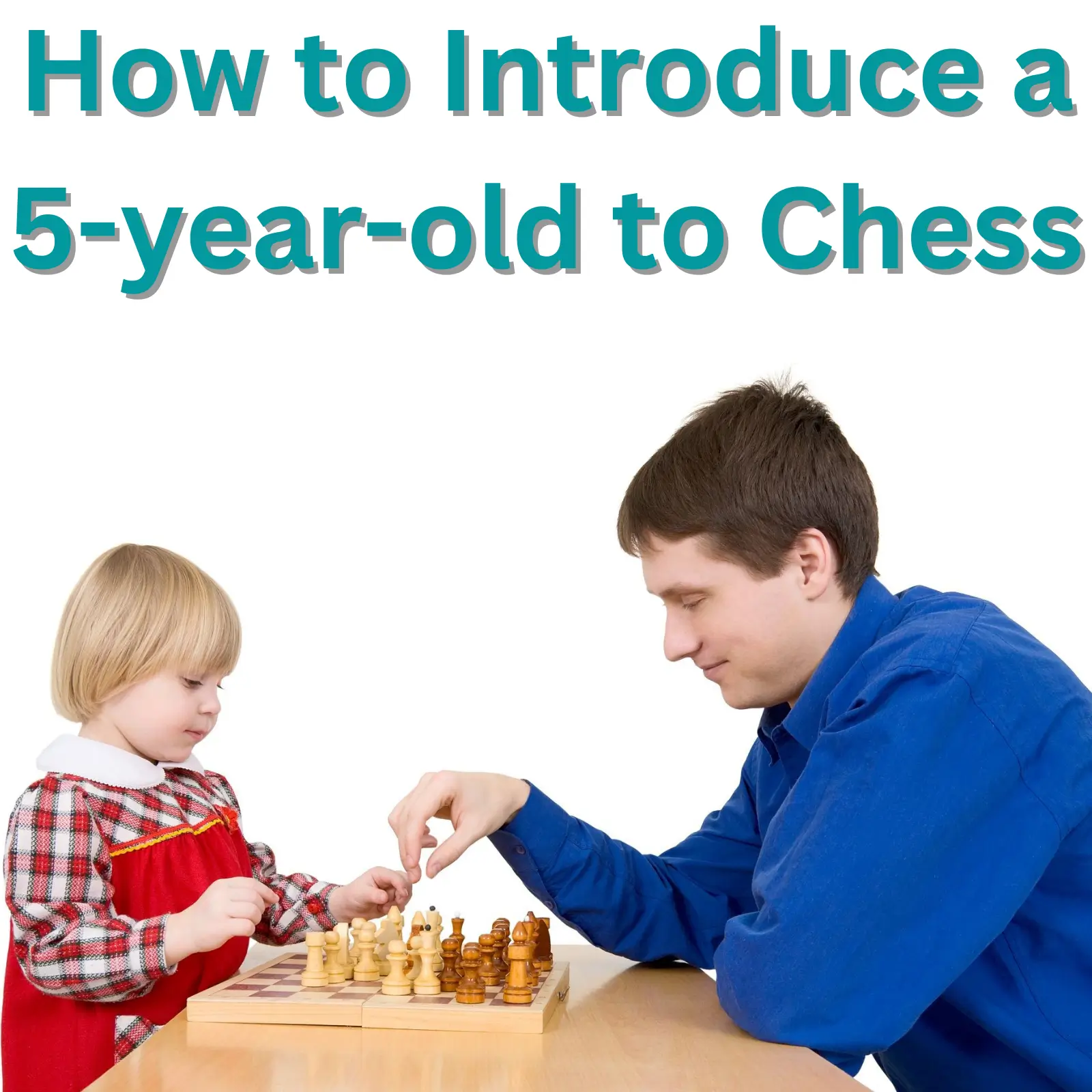
How to Introduce a 5-year-old to Chess
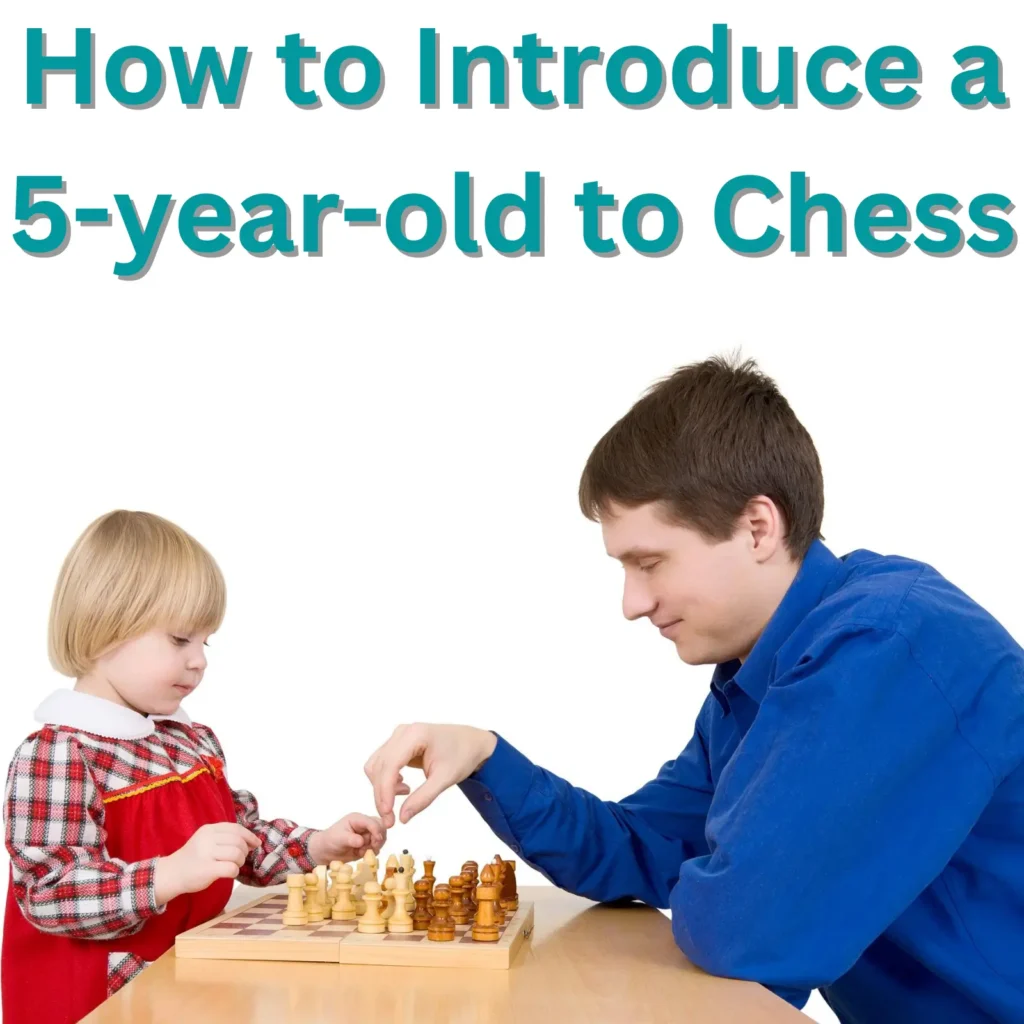
How to Introduce a 5-year-old to Chess
Many parents spend a lot of time and money in their children. It’s not uncommon for kids to be enrolled In all kids of activities, from piano lessons, sports, singing, dancing and much more.
Chess is another great activity that you can introduce your kids to, just like sports or singing, it will be a useful skill to have.
Not only will it help your little guy improve his memory and problem-solving skills. It also helps a lot with things like how to deal with anger when losing, how to improve, and most importantly it’s a great way for non-athletic kids to compete with others.
You can introduce your kids to chess at almost any age, it could be as young as 3 or as old as 10. But some people think the “perfect” age to introduce them is around 4-6. It depends on many factors, with the most important being how much they enjoy it.
In this article we’re going to go over some of the best ways to introduce a 5 year old (or around that age) to chess. Some of the benefits and some great tips to make the whole process easier.
Why you should teach your kids chess
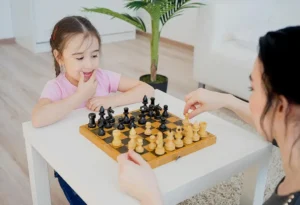
It might sound obvious to some but teaching chess to your kids is a worthwhile endeavor.
Let’s go over some of the best reasons to teach your kid chess while young.
Develops the brain
Just like a muscle gets bigger with use, our brains do the same. If young children focus and concentrate on difficult chess matches their brain will get a workout every time.
Chess is a perfect way to get your children to exercise their brain without resorting to boring activities like rote memorization and such.
Unlike school, if your kid enjoys chess as a game first, he will not see it as “studying”.
Problem-solving skills
In life one of the best ways to get ahead is to be able face challenges head on, and being a problem-solver is one of the best ways to guarantee this. It’s not uncommon to see “Problem-solving” skills” in almost every job ad nowadays.
Chess is a great way to train your child’s problem-solving skills in a low pressure environment that will challenge him to come up with ways to face difficult situations.
Playing from behind is an important skill in life, we won’t always have all the pieces but we can still make good moves.
Improves Concentration
Chess is a great way to improve concentration, you can’t win any match without focusing 100% into the match. This is very important in these modern times.
Nowadays distractions are so common that it can often feel impossible to concentrate on something for long before a new notification pops up.
Chess will teach your child a valuable lesson early on: focus is very important.
It’s a great way for introverts to socialize
If your kid is shy or introverted then chess might be a great way for him to make new friends and start interacting with people in person.
I know for me chess was a great way to spend time with other people without having the pressure of talking a lot back when I was a shy kid!
It’s also invaluable in meeting like minded people in places you don’t know anyone. If you have recently moved somewhere consider looking for a chess club for your kid to enroll in.
How to introduce a 5-year-old to chess
Now that we know why playing chess at a young age is so beneficial, let’s talk about some ways to introduce your 5-year-old to the game!
“When I was six, my sister bought me a set at a candy store and taught me the moves.” – Bobby Fischer
Start Early
As we mentioned earlier, you should start introducing your child to chess as soon as possible. Ideally, the child has watched you play before and is curious about the game.
One-hour sessions every week is more than enough for a young child between the ages of 4-6. In a couple of years without much effort you will see your kid playing chess effortlessly and it will pay out in the end!
If everything goes according to plan, he will be ahead of everyone at his age thanks to your efforts.
Don’t focus too much on the rules early on
One common mistake that I see a lot with parents: they get too hung up on the small details.
What I mean by that is that they spend a lot of time going over the rules of the game in great detail.
Remember we’re talking about very young children here, if they want to move every piece like it’s a pawn then let them!
It’s important for them to have fun and to experiment, imagine the first people that ever played chess, they had to play matches with made up rules and eventually refined these rules into what we now know as chess, it didn’t happen in a single day.
Think about it as if it was learning a new language, you will make many mistakes at first, what matters is that you are constantly trying, it’s the same here.
Start simple
It can be difficult to teach the game initially with every rule. So start with simplified rules, reduce the amount of pieces on one or both sides and focus on remembering how each piece moves.
With time you can start adding rules until you are at “standard chess”.
Make a reference graphic
One great tip for teaching chess is this. Either print or make a reference sheet of how each piece moves.
You can keep it with you every time you play and you’ll be surprised how fast your kid will memorize all the moves!
Play at their level
It might seem obvious to most parents, but it’s still good to remember. Going easy on your kid, giving tips and allowing takebacks is integral to engaging with your child while playing.
It’s not useful at all to destroy them for 4 matches straight, but neither is losing every match intentionally. Try to grow with them and slowly ramp up the difficulty.
You will be surprised how much of a challenge they can put on in a couple of years!
Let the child set the pace
Don’t rush things, it can take a lot of time for you to see results at first. The best way for them to learn is to do things at their own pace, according to their skill, interest level and age.
This means you should gently ask them if they just want to play or if they want to learn more. Eventually your kid will want to learn but there will be days where all he wants to do is goof around and play another match.
Your efforts will pay off big in the end, when it becomes clear that chess is not just another chore or subject at school. This means that he/she will now have a fun activity that doesn’t require a computer/phone screen that aids in his development and is also fun!
Start with the endgame
Depending on your child’s personality the most boring part of chess might be the opening memorization that is so common nowadays.
Start from endgame positions and work your way to mid game positions, only focus on the opening later on. And only if the child is very interested in chess overall.
It doesn’t make much sense to spend so much time on openings when you are starting out in chess (This actually applies to anyone learning chess not just children).
Are younger people better at chess
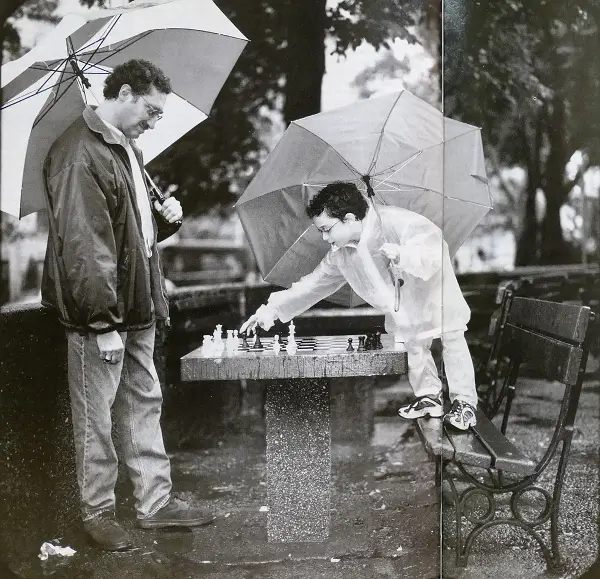
If you’ve been paying attention to professional chess lately then you might have noticed an interesting trend.
Lately some of the strongest chess players in the world like Caruana and Carlsen, started very early. Carlsen himself almost defeated Kasparov at age 13. While Caruana straight up beat Wojtkiewicz at age 10 and became the youngest GM in both the US and Italy at age 14.
Does this mean that young people are better at chess? Well… not really but let’s look at it in more detail
Unlike adults who have responsibilities, like work, school or parenting. Young people can spend all their free time on whatever they want, and if given direction and support they can play hundreds of matches a year to improve quickly.
“I started working pretty much all day, working with coaches in Spain and Hungary and Switzerland. We traveled Europe for about 10 years, and I, pretty much, played chess non-stop. I would play 100 games a year or something, for 10 years. And I went from a decent, talented kid level, to pretty much a strong Grandmaster level by the time I came back.” – Fabiano Caruana
As you can see putting the hours in is the second most important factor behind talent. No matter how talented if you don’t put in the hours, you can’t get better.
Related
- What Should A Chess Beginner Learn First
- At What Age Do You Stop Getting Better At Chess
- Is High IQ Related to Chess
References
- How to Teach Your Kids to Play Chess
- Benefits of Playing Chess
- Why you should consider learning chess online
You may also like
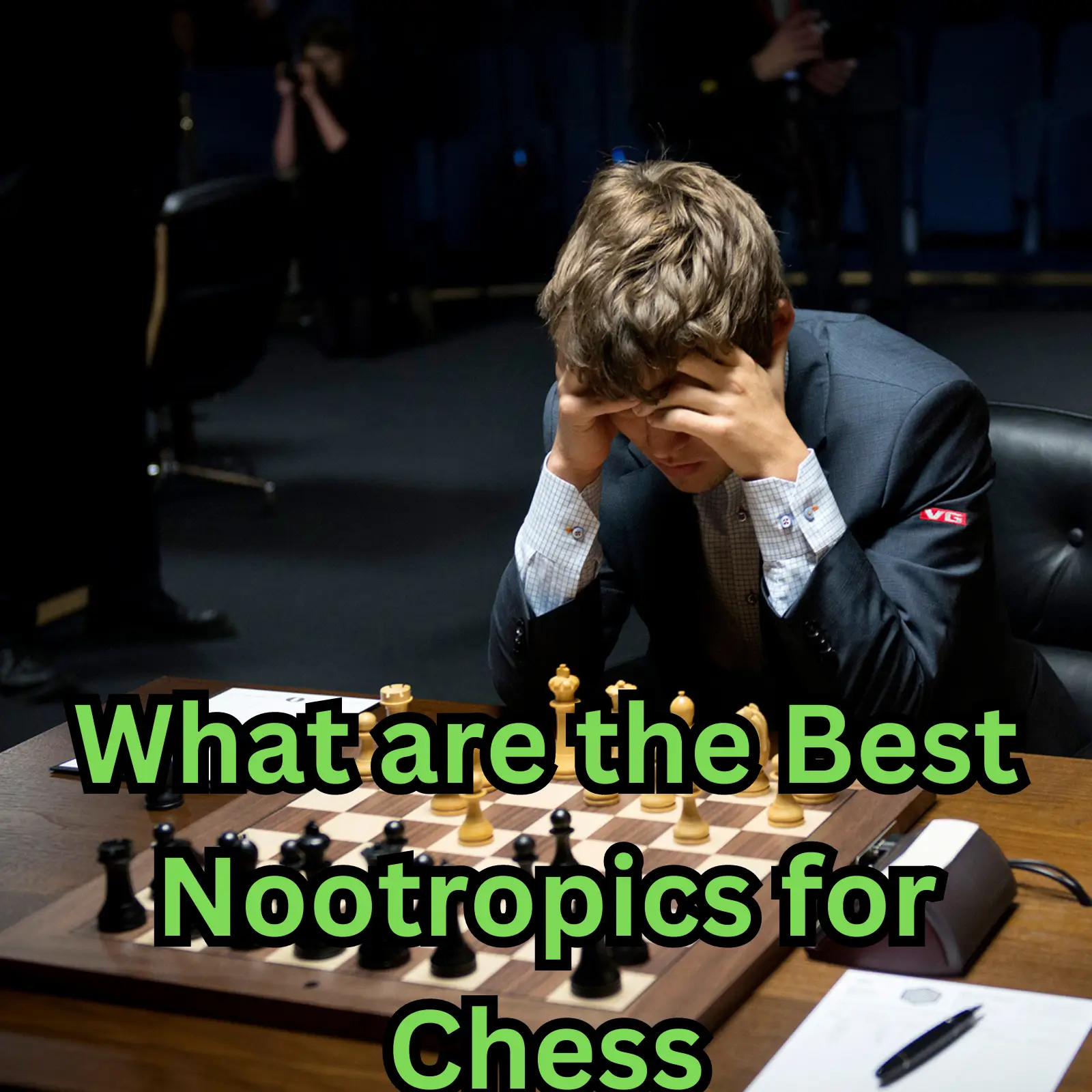
What are the Best Nootropics for Chess
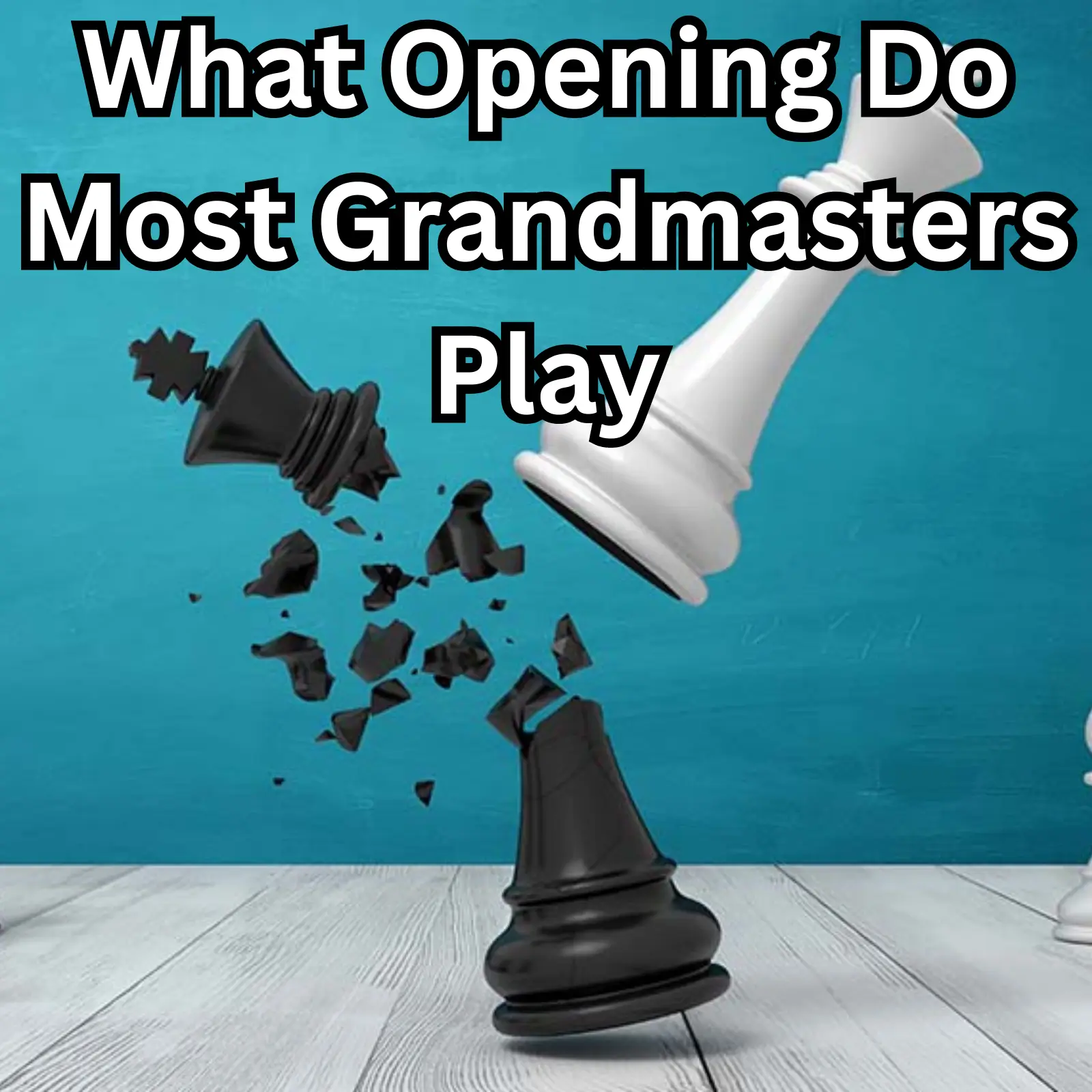
What Opening Do Most Grandmasters Play
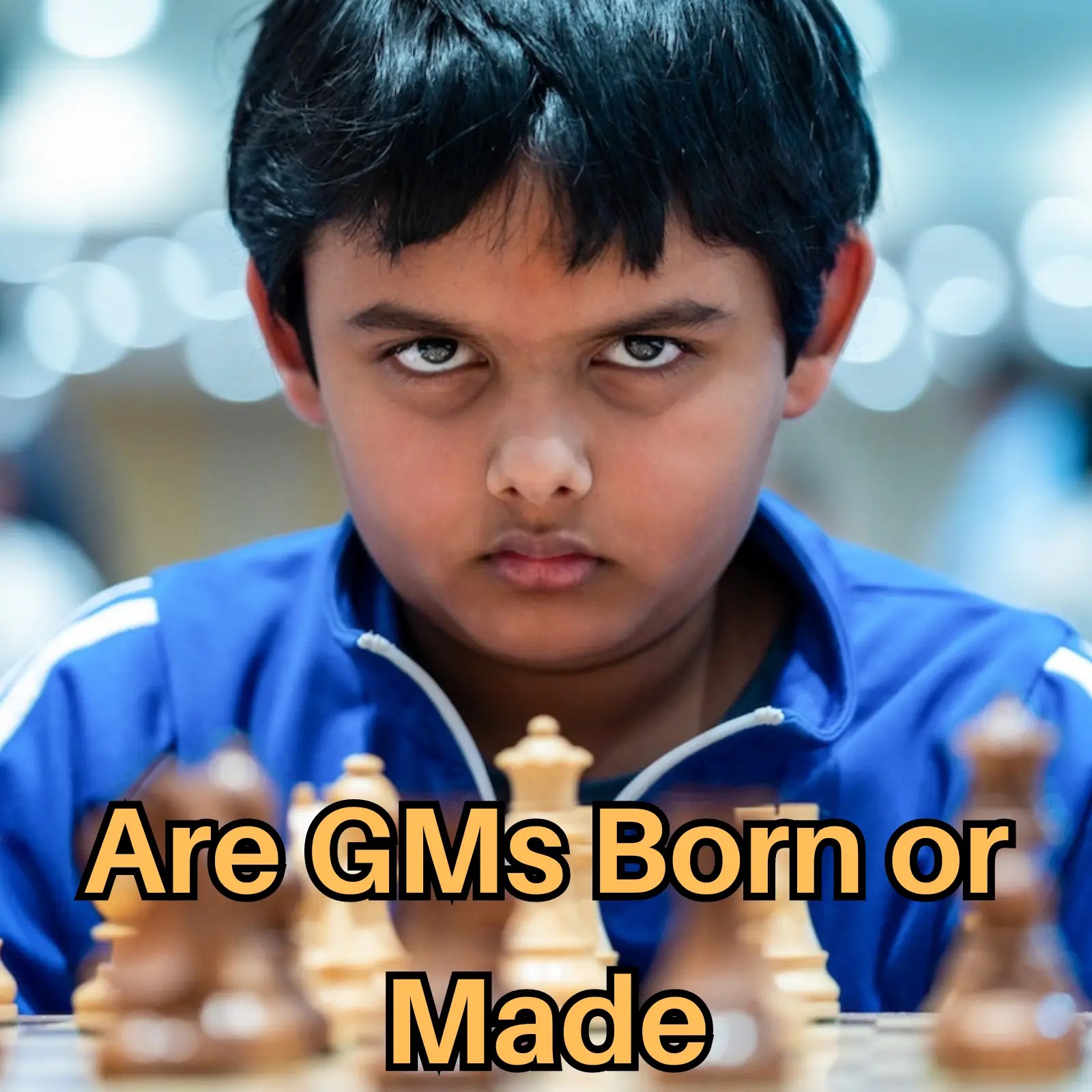
Are Grandmasters Born or Made
Archives
- February 2026
- January 2026
- December 2025
- November 2025
- October 2025
- September 2025
- August 2025
- July 2025
- June 2025
- May 2025
- April 2025
- March 2025
- February 2025
- January 2024
- October 2023
- September 2023
- August 2023
- July 2023
- June 2023
- May 2023
- April 2023
- March 2023
- February 2023
- January 2023
- December 2022
- November 2022
- October 2022
- September 2022
- August 2022
- June 2022
- May 2022
- April 2022
- March 2022
- January 2022
- December 2021
- November 2021
- October 2021
- August 2021
- November 2020
- July 2020
- May 2020
- April 2020
- March 2020
- August 2018
- July 2018
- June 2018
- April 2018
- March 2018
Categories
- Aftercare Procedures
- Age Groups
- AI/ML
- Alternative Medicine
- Ambient Computing
- Animal Health
- Animal Husbandry
- Animals
- Anti-Aging
- Architectural Design
- Art And Technology
- Auditory Science
- Augmented Reality
- Automation
- Babies
- Baby
- Beauty & Skincare
- Beauty Industry
- Biohacking
- Biomechanics
- Book Reviews
- Breastfeeding
- Budgeting
- Budgeting Strategies
- Business
- Cardiovascular Health
- Career Advice
- Career Development
- Career Growth
- Cats
- Chess
- Chronobeauty
- Circular Economy
- Civic Technology
- Cleaning Tips
- Cloud Computing
- Cognitive Health
- Cognitive Performance
- Cognitive Science
- Community
- Community Building
- Community Engagement
- Community Living
- Computer Vision
- Consumer Guides
- Consumer Trends
- Container Gardening
- Content Analysis
- Content Non-Technical
- Content Strategy
- Cooking Techniques
- Cosmetic Chemistry
- Cultural Events
- Cycling
- Data Analysis
- Data Engineering
- Data Governance
- Data Science
- Database
- Design Psychology
- Design Trends
- Developer Productivity
- Diet
- Diet
- Diet And Nutrition
- Digital Identity
- Digital Media
- Digital Wellbeing
- DIY
- DIY Projects
- Dogs
- Engineering Culture
- Entertainment News
- Environmental Impact
- Environmental Science
- Equity Compensation
- Ethical AI
- Exercise
- Exercise Science
- Exercise Technique
- Exotic Pets
- Fall Gardening
- Family
- Family Health
- Family Life
- Fashion Business
- Fashion Industry
- Fashion News
- Fashion Tech
- Financial Analysis
- Financial Optimization
- Financial Planning
- Flooring Maintenance
- Food
- Food Psychology
- Food Safety
- Food Science
- Food Tech
- Functional Fitness
- Functional Training
- Future Of Work
- Garden Care
- Garden Maintenance
- Gardening Tips
- Geospatial Data
- Gig Economy
- Greece
- Greek
- Greek Food
- Green Technology
- Gymnastics
- Hardware Engineering
- Health
- Health And Wellness
- Health Informatics
- Health Science
- Health Tech
- Health Technology
- Healthcare
- Healthcare Management
- Healthy Eating
- Healthy Recipes
- Holistic Health
- Holistic Wellness
- Home & Living
- Home Decor
- Home Financing
- Home Health
- Home Improvement
- Home Maintenance
- Home Organization
- Home Styling
- Horticulture
- Household Chemistry
- Identity Management
- Indoor Gardening
- Industrial Design
- Industry Analysis
- Infant Nutrition
- Infrastructure Management
- Ingredient Deep Dive
- Integrative Health
- Integrative Medicine
- Interior Design
- Internet of Things
- Internet of Things (IoT)
- Invalid Request
- Investment Strategies
- Investment Strategy
- IoT
- Kids
- Leadership Development
- Learning Strategies
- Lifestyle
- Lifestyle Brands
- Lifestyle News
- Lifestyle Optimization
- Literary Criticism
- Literature
- Logistics Management
- Machine Learning
- Material Science
- Materials Science
- Meal Planning
- Media Analysis
- Meditation
- Mental Health
- Mental Performance
- Mental Wellness
- Miami
- Miami Food
- Mind And Body
- Minimalism
- Mobile Development
- Neuroscience
- No Applicable Categories
- Nursing
- Nutrition
- Nutrition News
- Open Source
- Operating Systems
- Operational Resilience
- Opinion
- Organization Tips
- Outdoor Living
- Over 40
- Over 50
- Over 60
- Parenting
- Parenting
- Parenting Strategies
- Performance
- Performance Optimization
- Personal Development
- Personal Finance
- Personal Growth
- Personal Productivity
- Pet Care
- Pet Safety
- Philosophy
- Plant Care
- Politics
- Product Formulation
- Productivity
- Productivity Engineering
- Protein
- Psychology
- Psychology of Space
- Quantified Self
- Reading Culture
- Real Estate Investment
- Recipes
- Regulatory Compliance
- Remote Work
- Renovation Planning
- Resource Management
- Respiratory Health
- Responsible Pet Ownership
- Retail Strategy
- Retail Technology
- Robotics
- Science
- Seafood
- Seasonal Gardening
- Security
- Sedentary Health
- Self-Care
- Skincare Science
- Skincare Trends
- Sleep
- Sleep Health
- Smart Home
- Smoothies
- Social Impact
- Soft Skills
- Soil Health
- Spatial Computing
- Spatial Design
- Stress Management
- Supplements
- Sustainability
- Sustainability Science
- Sustainable Engineering
- Sustainable Fashion
- Systems Engineering
- Tax Optimization
- Tax Strategy
- Tech Investment
- Technical Writing
- Testing
- Travel
- Travel News
- Travel Safety
- Travel Tips
- Trend Analysis
- Tropical Plants
- Uncategorized
- Urban Gardening
- Urban Planning
- User Experience
- Veggie
- Vietnam
- Virtual Events
- Volunteering
- Wealth Management
- Wearable Technology
- Web Development
- Wellness
- Wellness Technology
- Winter Gardening
- Work-Life Balance
- Workplace Culture
- Workspace Setup
- World
- Writing
- Writing Skills
- Year In Review
- Yoga
- Yoga News
- Zero Waste

Leave a Reply